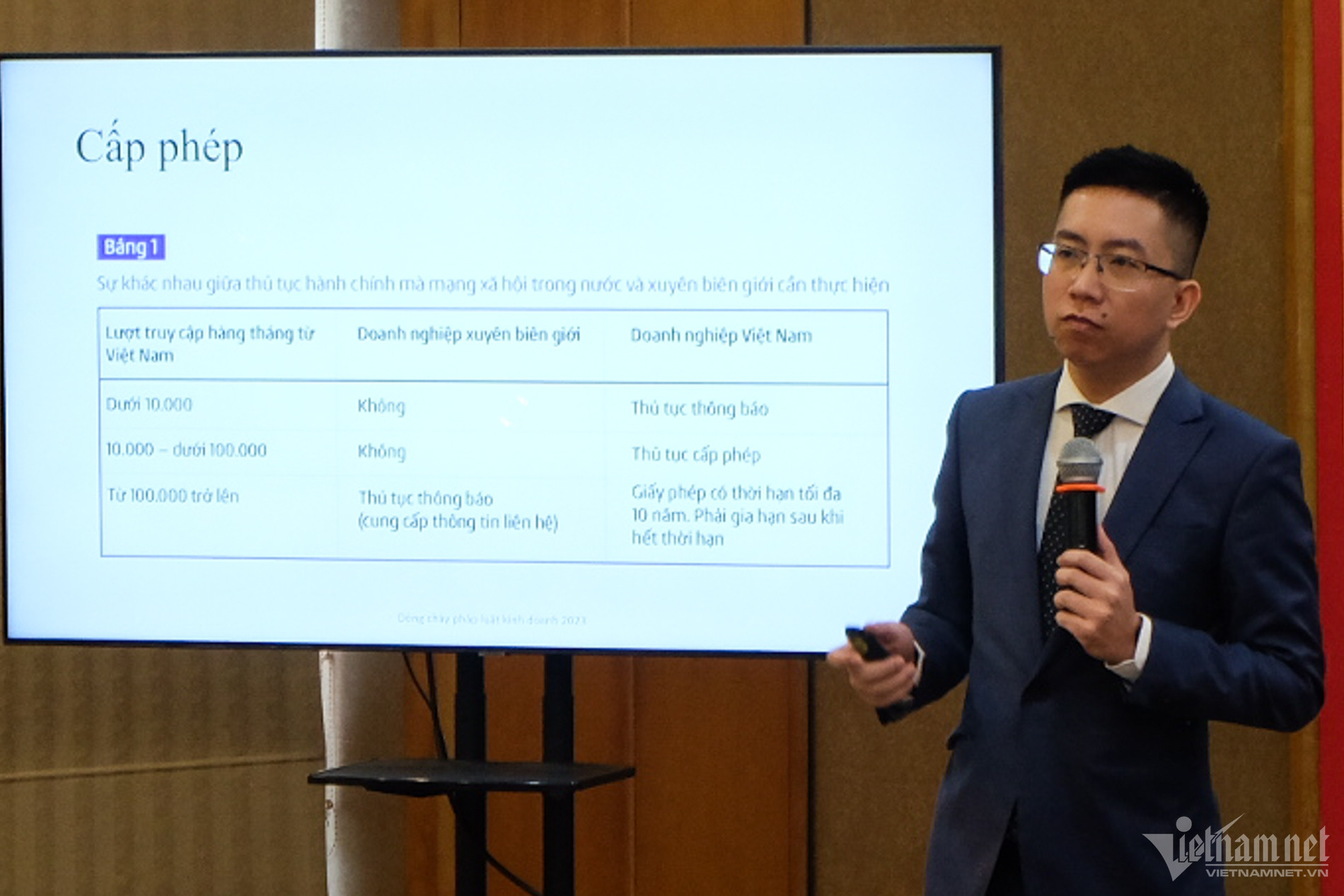On the morning of April 25, the Vietnam Confederation of Commerce and Industry (VCCI) announced the 2023 Business Law Flow Report. This is the 6th year VCCI has published the report, which records notable issues. attention in the process of developing legal regulations on business.
There is still “reverse protection” for cross-border platforms
Countries often tend to favor and create favorable conditions for domestic businesses over foreign businesses. This is understandable because governments often try to develop the internal strength of the economy, with a team of domestic businesses.
However, according to VCCI, in the field of digital economy, there is still inequality between domestic and foreign enterprises.
The Law Flow Report points out that the draft Decree replacing Decree 72/2013/ND-CP on management, use and business of Internet services has regulations on management conditions for service providers. service. When comparing regulations between subjects, VCCI found that it seems that businesses providing cross-border services are applying management measures that are more open, gentle, and have fewer obligations than domestic businesses. .
VCCI pointed out that there is a difference between domestic and cross-border social network administrative procedures that need to be implemented. Accordingly, cross-border businesses will have to carry out notification procedures if monthly visits from Vietnam are 100,000 or more.
For Vietnamese businesses, they must carry out licensing procedures if they have monthly visitors from 10,000 to less than 100,000. For domestic social networks with over 100,000 monthly visits or more, their licenses have a maximum term of 10 years. Domestic businesses must also renew when their licenses expire.
According to VCCI, from the above data, it can be seen that Vietnamese businesses are considered “large” when they reach 10,000 visitors/month, which is only 1/10 of the “large” threshold for cross-border businesses. . The reason for setting the threshold of 10,000 is because only a few domestic businesses reach this threshold, let alone the threshold of 100,000 visits.
The Vietnam Federation of Commerce and Industry believes that domestic enterprises are relatively small in scale and do not greatly affect public interests. Therefore, there is no need to apply strict measures such as licensing.

According to VCCI’s report, not only in terms of regulations, Vietnamese businesses also suffer discrimination in the actual implementation process. Many businesses reflect that for the same violation, Vietnamese businesses will be recorded and fined immediately, while foreign businesses seem to be more “comfortable”. The management agency only sent a request to foreign businesses to coordinate the removal, without even imposing any fines.
VCCI said businesses did not complain about being fined. However, what makes businesses worried is the unfairness in sanctions between domestic and foreign enterprises, thereby leading to the business investment environment in this field becoming less favorable for domestic enterprises. .
The legal environment makes it difficult for domestic social networks to compete with foreign countries
According to Mr. Nguyen Minh Duc, representative of the research team of VCCI’s Legal Department, social networks are a type of business where VCCI evaluates that legal regulations cause domestic businesses to be subject to heavier regulations than foreign businesses.
Vietnamese businesses are subject to more onerous licensing procedures than foreign businesses providing cross-border social network services. The obligations that Vietnamese businesses must fulfill are also much greater.
“There are some specific obligations that only domestic social networks must comply with, such as collecting more user information, foreign social networks do not have to collect user ID numbers or citizen identification numbers. application, but domestic social networks must collect this information“, Mr. Duc cited evidence.
Explaining the lack of sanctions and requirements for foreign platforms, according to Mr. Duc, Vietnam does not have effective regulations outside its territory. VCCI experts believe that Vietnamese social networks will not be able to compete with foreign social networks in such a legal environment.

Social network Gapo uses ‘new tricks’ to compete with foreign competitorsBoth digital transformation and corporate culture formation, this is the new direction of GapoWork digital workspace (formerly Gapo social network) to compete with foreign competitors.
Tags: reason difficult Vietnamese social networks compete Google Facebook
-






